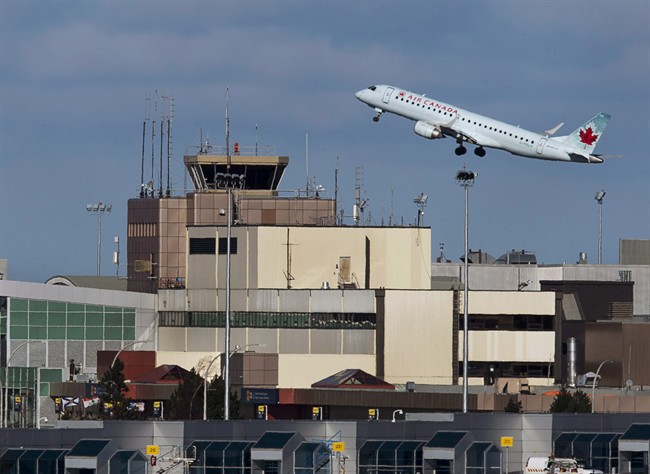Canada is one step closer to forcing visitors from almost every country in the world to obtain authorization before flying into the country.

The proposed changes to the law would require citizens from countries that currently don’t require visas—such as the United Kingdom and most of the European Union—to obtain an “electronic travel authorization” before traveling to Canada by air, according to recently-released details.
The move to collect and share travellers’ information, including background and “biographical” notes, is part of Canada’s Beyond the Border agreement with the United States, signed in 2011.
And it’s all in the name of harmonizing Canadian security measures with those in the U.S. as a means for spotting incoming threats, according to the government.
“Canada and the United States committed to establishing a common approach to screening visa-exempt foreign nationals in order to identify threats before they arrive in North America,” an official with Citizenship and Immigration Canada wrote in the government’s official publication, the Canada Gazette.
Privacy concerns
The government has now taken the step to hear comments and concerns from the public, provinces, territories and the travel and tourism industry on the proposal.
But the program, modelled on one the U.S. has had in place since 2008, has raised some red flags for Canada’s privacy commissioner.
- Canadian man dies during Texas Ironman event. His widow wants answers as to why
- ‘Shock and disbelief’ after Manitoba school trustee’s Indigenous comments
- Several baby products have been recalled by Health Canada. Here’s the list
- ‘Sciatica was gone’: hospital performs robot-assisted spinal surgery in Canadian first
Jennifer Stoddart, who left her post as privacy commissioner last week, told a House of Commons committee last year that electronic travel authorizations would involve collecting “potentially sensitive personal information” about millions of individuals.
She described the proposed program as a “significant new collection of information” that would include, in part, a potential traveller’s family name, date of birth, email address and “highly sensitive questions” regarding physical or mental disorders, substance abuse and criminal history.
Among the current concerns from the Office of the Privacy Commissioner is a lack of transparency and fuzzy details about which data elements will be provided to Immigration Canada, how the information can be used and how long it will be stored.
None of those elements is laid out in the proposed law, although it remains the opinion of the commissioner each should.
In response to emailed questions sent Monday, Immigration Canada said the program will be implemented according to the Privacy Act and “include safeguards regarding the use, disclosure, subsequent use and confidentiality protections,” communications advisor Mary Jago wrote.
As for how long the government will store collected information, she said those specifics are still being worked out.
The auditor general recently raised concerns about shortfalls in Canada’s border controls that have allowed dangerous people into the country.
Under the proposed program, Canada won’t be collecting information from all travellers, since Canada is exempt from the U.S.’s program, so will American citizens be exempt from Canada’s.
As it stands, the new program is expected to apply to most citizens who currently enjoy visa-exempt travel to Canada, including people from Japan, Monaco, Switzerland, and dozens of others.
The change could also mean Canada will collect electronic information from anyone holding a Foreign Affairs-issued passport containing diplomatic, consular or official acceptances who is “a properly accredited diplomat, consular officer, representative or official of a country other than Canada, of the United Nations or any of its agencies, or of any international organization of which Canada is a member.”
The new rules may also apply to foreigners passing through Canada en route to the U.S., even if the flight only stops on Canadian soil to refuel. “It is expected that the vast majority of applications would be approved by the electronic system within minutes of applying,” according to the government.
Grounds for refusal include involvement in war crimes, crimes against humanity and international human rights violations.
Once someone is approved for travel to Canada, it is expected they will be able to use that same authorization for up to five years.
There is no firm timeline yet for when the government will fully implement the program.




Comments